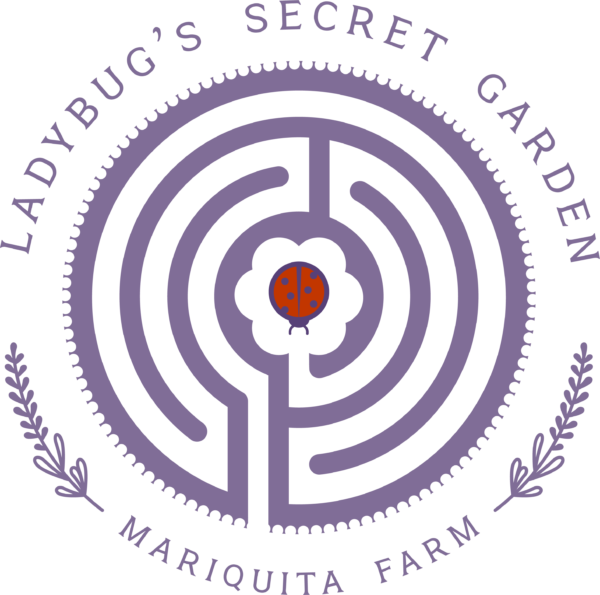Farm City
 I live on a farm so I wake up with the rooster. When the donkeys see the kitchen light go on they bray for hay, and then the goats and the sheep hear the donkeys and bleat and bah for attention. After coffee I feed the animals, and by 6:30 I’m locked into a series of phone calls about the day’s work with Jose and Espana out at the row crop farm in Hollister, and with my partner Stephen at High Ground Organics in Watsonville. When Manny arrives I have a brief conference with him about the herbs, the animals, and the packing schedule for the day, then I have a phone conversation with Elias about his duties as the farm driver, and finally I leave myself for the farm in Hollister. On my way I might stop at Debbie’s market for a second cup of coffee, where I’ll run into Bobby Peixoto, and we’ll talk about farming for a minute. Once at the field my farm occupies my attention, unless Vince, Darrel, Steve, Ramon, or Martin should happen to call about the restaurant delivery route that we work together on, in which case we’ll talk about their farms and their harvests. When I get home I’ll talk with my wife, Julia, about our farm’s business, and after dinner, if I don’t play with my donkeys or haul water to my cows over on the Kliever Ranch, I might take time to write a CSA newsletter essay about farming or work on the book that I’m writing about farming. So by 9:30, when I’m looking for something to read something before I go to sleep, I don’t usually pick up a book about farming. I want a break. My favorite three books from the last several years have been The Negative Dialectics of Poodle Play, by Ben Watson, The Painted Word, by Tom Wolfe, and Hitler and the Power of Aesthetics, by Frederic Spotts. Each of these books is about art, and not a single one of them has so much as a whisper about agriculture in it. So when my friend, Martin, gave me a book about urban farming called Farm City, by Novella Carpenter, I thanked him, but I wasn’t sure I’d read it.
I live on a farm so I wake up with the rooster. When the donkeys see the kitchen light go on they bray for hay, and then the goats and the sheep hear the donkeys and bleat and bah for attention. After coffee I feed the animals, and by 6:30 I’m locked into a series of phone calls about the day’s work with Jose and Espana out at the row crop farm in Hollister, and with my partner Stephen at High Ground Organics in Watsonville. When Manny arrives I have a brief conference with him about the herbs, the animals, and the packing schedule for the day, then I have a phone conversation with Elias about his duties as the farm driver, and finally I leave myself for the farm in Hollister. On my way I might stop at Debbie’s market for a second cup of coffee, where I’ll run into Bobby Peixoto, and we’ll talk about farming for a minute. Once at the field my farm occupies my attention, unless Vince, Darrel, Steve, Ramon, or Martin should happen to call about the restaurant delivery route that we work together on, in which case we’ll talk about their farms and their harvests. When I get home I’ll talk with my wife, Julia, about our farm’s business, and after dinner, if I don’t play with my donkeys or haul water to my cows over on the Kliever Ranch, I might take time to write a CSA newsletter essay about farming or work on the book that I’m writing about farming. So by 9:30, when I’m looking for something to read something before I go to sleep, I don’t usually pick up a book about farming. I want a break. My favorite three books from the last several years have been The Negative Dialectics of Poodle Play, by Ben Watson, The Painted Word, by Tom Wolfe, and Hitler and the Power of Aesthetics, by Frederic Spotts. Each of these books is about art, and not a single one of them has so much as a whisper about agriculture in it. So when my friend, Martin, gave me a book about urban farming called Farm City, by Novella Carpenter, I thanked him, but I wasn’t sure I’d read it.
I might not have read Farm City either, if it hadn’t been for the cute cover image of a wheel barrow all covered in graffiti. The last thing I need before I go to sleep is some doom-soaked call to action about the threats of lead in the soil or the politics of food security, but the cover promised humor. Besides, the wheelbarrow reminded me of Martin. He’s a funny guy. He farms in Chualar, south of Salinas, but he lives in Noe Valley, in San Francisco. He’s single and child free, so he has the time, money, and energy for lifestyle; if anyone I know is going to make it to the most interesting exhibition, the most exciting concert, or the opening of a new restaurant it’ll be him. He lives with one foot in the field and the other in the street, and talking to him allows me to vicariously live the life of a boulevardier. We both sell to restaurants and our delivery trucks are even the same make and model, except that he parks his at night on city streets, so it’s completely covered in graffiti.
In the 80s, years before I met Martin, he and I were ships that passed at night; I worked at Star Route Farms in Bolinas and delivered lettuces in the night time to the Hayes Street Grill in San Francisco and Martin worked as a bus boy at the restaurant in the daytime. He saw our lettuces, thought that it would be fun to grow food, and began a back yard farm, so Martin’s roots are in urban farming. As a farmer and a city dweller he’d know if Novella was writing truthfully. So I opened Farm City, and I really enjoyed it.
I’m not going to ruin the story for you by retelling it. Just let me say that when I first started writing for our CSA newsletter I crafted a piece about gopher control by telling a story about speaking to the Watsonville Christian Women’s Club on the subject of organic farming practices. My friend, Patty Unterman, read my story. She is a writer, a restaurant critic, and a restaurateur (she’s an owner of the Hayes Street Grill). When Patty talks, I listen.
“I liked your story,” she told me, “especially the line about the church lady and the rifle. You’ll find that you can write about any subject you know, and readers will be interested, as long as you write about people.”
That conversation with Patty crystallized something for me, and since that day that’s what I’ve tried to do; write about my subject, agriculture, by telling stories that convey didactic content in a context of human interest, so that facts and figures find a place in the tale the way nuts and cherries bring color and flavor to a fruitcake. And that’s just what Novella Carpenter has done so well in Farm City. She writes stories about raising, chickens, turkeys, pigs, and watermelons in the Oakland ghetto. Subjects that can get wonky and tedious, like food security, economic democracy, the spiritual dimension to taking responsibility for food choices, or the p.c. mantra of “fresh, local, and organic” all get covered, but in a fresh and provocative manner that introduces the reader to a tribe of people who don’t usually show up in contemporary food writing. I can write stories about chickens, turkeys, pigs, and watermelons too, but not these stories.
By this time of every year, tired and distracted from the months of work behind me, with the corn chest high and beginning to tassel, and with the first tomatoes, peppers, and cucumbers just coming on, it’s easy to feel overwhelmed by the immense amount of work about to hit. The money’s all been spent, the harvest is hanging in the balance, and Thanksgiving seems like its ten years off; it’s too easy to ask, “Why, Andy, didn’t you choose to be a venture capitalist or a Chippendale dancer? Why did you want to be a farmer?” Well, Farm City is a fun book that reminds me why. Last night, July 7th, at the Capitola Book Cafe, Novella Carpenter did a reading from Farm City. Julia and I went and heard her speak even though it was in the evening and she did talk about farms. She’s as good at speaking as she is at writing and I enjoyed the fact that she didn’t take herself as seriously as some of the people in her audience did. Her next three gigs are in LA, NYC and Danville: go see her if you can. Here’s a link to an interview Novella Carpenter did with Gene Burns, in case you don’t live in Danvillle or you can’t fly to LA or NYC to hear a neighbor talk about pigs in Oakland. Or buy her book, enjoy it, and give it to a friend.
Copyright 2009 Andy Griffin
0 thoughts on “Farm City”
Leave a Reply
You must be logged in to post a comment.



Andy: I’ve enjoyed your pieces here and will line up for your book. I also really liked Novella’s book, it actually inspired me to plant some of the things I can’t get at my local farmers market. thanks for the good (and hard) work.